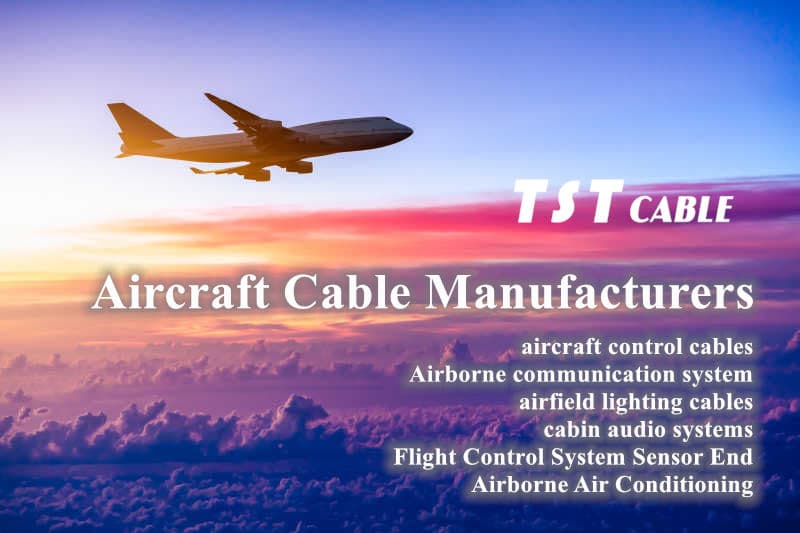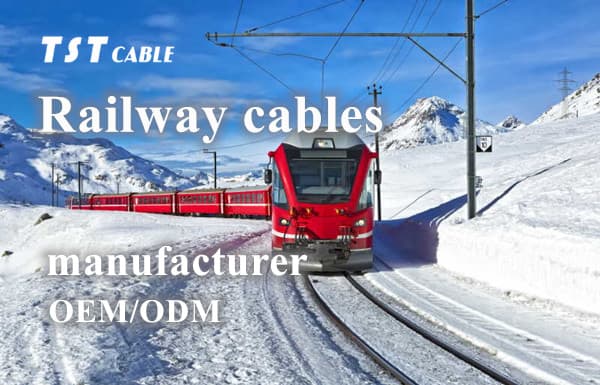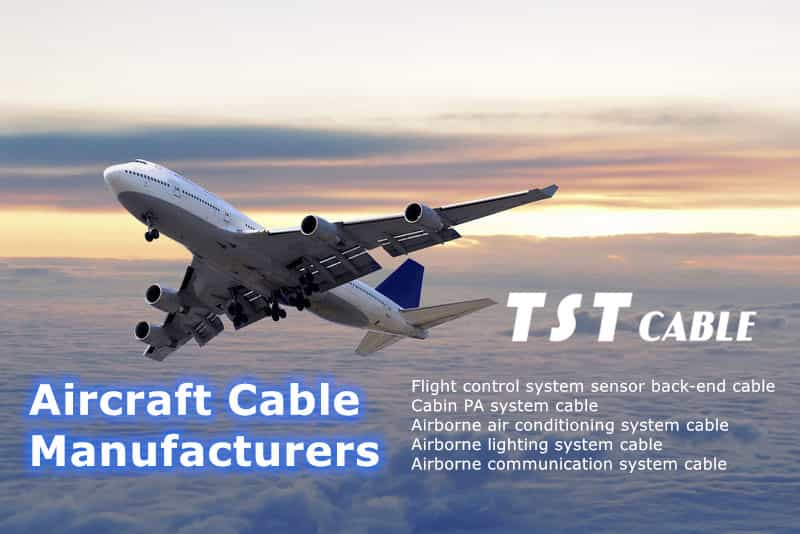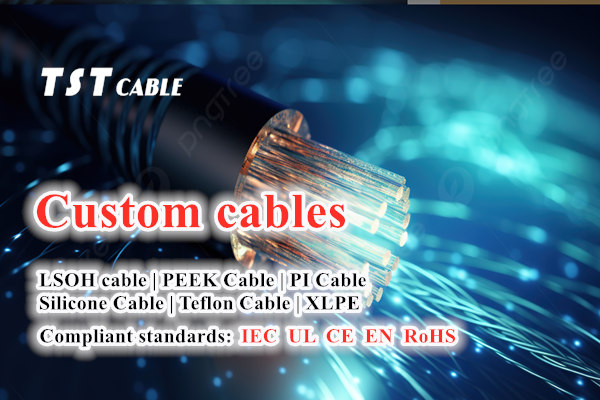Teflon material, with its unique physicochemical properties, occupies a pivotal position in the manufacture of aviation cables.
TST CABLES, an aircraft cable manufacturer, summarizes five advantages of Teflon in aviation cables
First, excellent high temperature resistance
Teflon material is able to work stably for a long period of time in environments as high as 260℃. This characteristic is crucial for high temperature areas such as aviation engines, ensuring that cables will not fail due to thermal aging in high temperature environments.
Compared with other materials, such as silicone cables are usually resistant to temperatures up to about 200 ℃, Teflon’s high temperature resistance is more outstanding, better able to meet the requirements of the aviation field of high temperature environment.
Second, excellent corrosion resistance
Teflon is inert to most chemicals and solvents, resistant to strong acids and alkalis. This corrosion resistance allows Teflon cable to remain stable in complex chemical environments, reducing cable failures caused by chemical corrosion.
This is an extremely important characteristic for aviation environments that are often exposed to a variety of chemicals.
Third, stable electrical performance
As a class C insulating material, Teflon has excellent electrical properties, can withstand high voltages and maintain a stable insulation resistance. This characteristic is essential to ensure the stability and safety of aviation electrical systems.
The stable electrical performance of Teflon cables can effectively prevent the occurrence of electrical faults and improve flight safety.
Fourth, lightweight and durable
Teflon cable is relatively lightweight, which helps to reduce the burden of flight and improve flight efficiency. In the field of aviation, every gram of weight reduction means lower energy consumption and improved performance.
At the same time, Teflon cables also have excellent abrasion resistance and durability, suitable for frequent bending and movement of the environment, extending the service life of the cable.
V. High Flame Retardant
Teflon materials have excellent flame retardant properties, which is particularly important in the aviation field. In emergency situations, the flame retardant properties of Teflon cables help to reduce the risk of fire and buy valuable escape time for passengers and crew.
In summary, the importance of Teflon material in aviation cables cannot be overstated. Its excellent high temperature resistance, excellent corrosion resistance, stable electrical properties, lightweight and durable characteristics, and high flame retardancy make Teflon cables one of the preferred materials in the aviation field.

Comparison of performance parameters of Teflon cable and silicone cable PVC cable material:
High temperature resistance:
Teflon cables: can withstand high temperatures up to 260°C and operate stably at this temperature for long periods of time.
Silicone cables: can usually withstand temperatures up to about 200 ℃, but at higher temperatures the performance will be significantly reduced.
PVC cables: have a lower temperature resistance range, usually below 80°C.
Corrosion resistant:
Teflon cables: inert to most chemicals and solvents, resistant to strong acids and alkalis.
Silicone cable: also has a certain degree of corrosion resistance, but less than Teflon.
PVC cable: relatively weak corrosion resistance, easy to be eroded by certain chemicals.
Electrical performance:
Teflon cable: as a class C insulation material, it has excellent electrical properties, can withstand high voltage and maintain a stable insulation resistance.
Silicone cable: good electrical performance, but may not be as good as Teflon in high frequency signal transmission.
PVC cables: average electrical performance, suitable for low frequency and low voltage applications.
Abrasion resistance and durability:
Teflon cables: excellent abrasion resistance and durability for environments with frequent bending and movement.
Silicone cables: also have some abrasion resistance, but may not be as good as Teflon.
PVC cables: have relatively poor abrasion resistance and are easily damaged by friction.
Weight:
Teflon cables: are relatively lightweight, helping to reduce the burden of flying.
Silicone cables: weight may be slightly higher than Teflon, but still a lightweight material.
PVC cables: weight may vary depending on the specific construction, but usually not the lightest option.
Flame Retardant:
Teflon cable: has excellent flame retardant properties, which helps reduce the risk of fire.
Silicone cables: also have some flame retardancy, but may be slightly less than Teflon.
PVC cables: flame retardant properties vary depending on the specific formulation and treatment.
TST CABLES is a professional manufacturer of cables for aircraft core equipment. TST CABLES Teflon cables excel in high temperature resistance, corrosion resistance, electrical performance, abrasion resistance and flame retardancy, and are particularly suitable for aviation and other demanding environments. While other cable materials may have similar performance in some aspects, TST CABLES Teflon has better overall performance.
Also available in:
English




